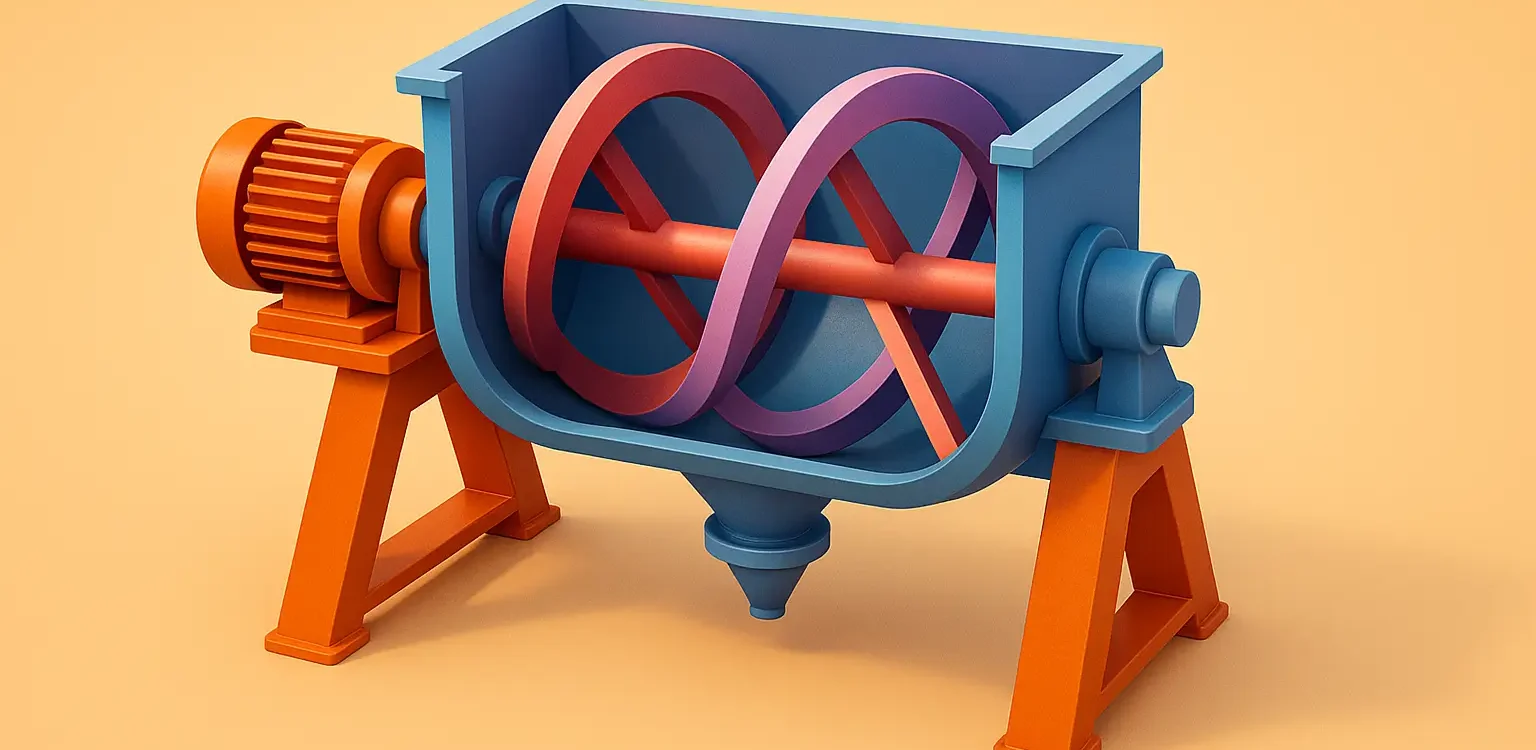Principles of Ribbon Blender:
- The ribbon blender uses convective mixing by means of a helical ribbon agitator that moves materials both radially and laterally.
Construction of Ribbon Blender:

This is a sample ad placement!
- Trough: U-shaped horizontal trough that holds the materials.
- Ribbon Agitator: Double helical ribbons mounted on a central shaft.
- Drive System: Motor and gearbox to rotate the ribbon agitator.
- Support Frame: Sturdy frame to support the trough and drive system.
- Loading and Unloading Ports: For adding and discharging materials.
- Optional Features: Heating or cooling jackets, spray nozzles for adding liquids.
Working:
- Materials are loaded into the trough.
- The agitator rotates, with the inner ribbon moving materials towards the center and the outer ribbon moving materials towards the ends.
- This counter-flow action ensures thorough mixing.
- The process continues until the desired homogeneity is achieved.
- The mixed product is discharged through a bottom valve or port.
This is a sample ad placement!
Uses:
- Food Industry: Mixing dry powders, granular ingredients, and pastes.
- Pharmaceuticals: Blending powders, granules, and moist materials.
- Chemical Industry: Mixing fine chemicals, pigments, and other powders.
- Construction: Mixing dry mortar, plasters, and cement blends.
Merits:
- Versatile, can handle a variety of materials including dry powders, pastes, and slurries.
- Efficient mixing action ensures homogeneity.
- Can be equipped with heating/cooling jackets for temperature-sensitive processes.
- Suitable for continuous and batch operations.
This is a sample ad placement!
Demerits:
- Can be energy-intensive.
- Not suitable for highly cohesive or sticky materials.
- Cleaning can be challenging due to the complex structure of the ribbon agitator.
- May generate heat, which can be detrimental to heat-sensitive materials.
Thank you for reading from Firsthope's notes, don't forget to check YouTube videos!

